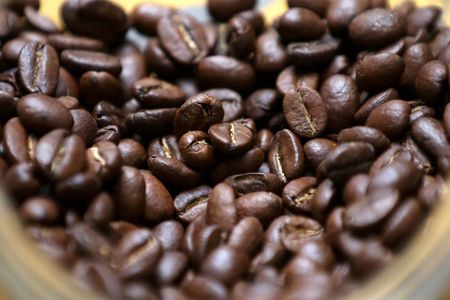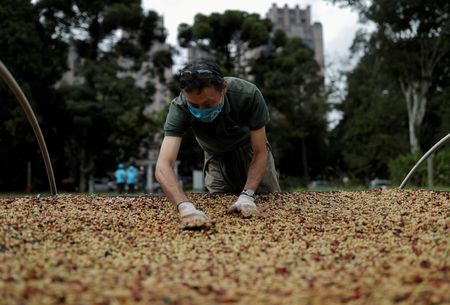By Marcelo Teixeira
NEW YORK (Reuters) – The global coffee market is going through a transformation trend that will involve higher quality and pricier coffees, but not higher overall traded volumes, as people increasingly use single doses and cut out old-style, large dripping jars.
The COVID-19 pandemic boosted that movement, according to an industry expert, as people were cut out of office coffee and started to explore new processes and qualities.
“There is no way back,” said Henrique Dias Cambraia, a coffee producer, processor and the president of Brazil’s Specialty Coffee Association (BSCA).
“Coffee drinkers increased their knowledge, acquired equipment – they are willing to spend more on higher quality,” said Cambraia in an interview, adding that the market has experienced the growth of single-dose offerings with Keurig dominating in the United States and Nestle’s Nespresso leading in Europe.
“This trend will probably limit volumes, because those processes use less coffee, but it will boost pricier specialty coffee sales,” he added.
The U.S. National Coffee Association said in its latest data trends report at the end of September that 54% of Americans had at least one specialty coffee serving in the prior week.
Cambraia said the trend is stronger in richer countries, but that it is also happening in emerging economies where there has been improvement in incomes.
Farmers are aware of the change, he said, and are adapting to produce better coffees.
Brazil, for example, the world’s largest producer and exporter, which in the past was mostly a supplier of commodity coffee, is currently shipping several types of high quality products.
Cambraia estimates around 20%-25% of Brazil’s arabica coffee is currently qualified as specialty. He expects that to increase as newer-generation farmers acquire knowledge of post-harvest processes to increase quality, such as fermentation, and apply that to family farms.
(Reporting by Marcelo Teixeira; Editing by Josie Kao)


